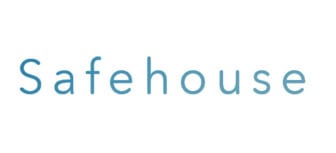
February 6, 2019; New York Times, KYW News Radio, and the Associated Press
The US Justice Department is suing to stop Safehouse, a Philadelphia-based nonprofit formed last year, from providing the country’s first safe injection site, reports Abby Goodnough in the New York Times. According to the Associated Press, Philadelphia has the highest opioid death rate of any large US city.
Steve Tawa, reporting for KYW News, points out that both Philadelphia’s mayor, Jim Kenney, and city district attorney Larry Krasner have supported the nonprofit. Safehouse also has the backing of former Pennsylvania governor Ed Rendell.
The idea, Goodnough explains, is that, “At the site, a nurse practitioner or other medical provider would supervise and be ready to respond should anyone overdose after injecting drugs they brought in. The site would also provide clean needles, wound care, and referrals to addiction treatment and legal services.”
Evidence from Canada suggests that safe injection sites can reduce overdose fatalities. A 2017 article in the Canadian Family Physician, for instance, found that safe injection sites “are associated with lower overdose mortality (88 fewer overdose deaths per 100,000 person-years)” and “67 percent fewer ambulance calls for treating overdoses.” The authors of that article also note that there are more than 90 safe injection sites worldwide, including one operating in Vancouver, Canada, since 2003.
Safehouse in Philadelphia would be the first such safe injection site in the US, however. Goodnough does note that, “San Francisco, New York, Seattle, Denver, and Boston have also seriously considered safe injection sites as a way to reduce overdose deaths at a time when synthetic fentanyl is spreading and killing many who inject it, often within minutes.”
Sign up for our free newsletters
Subscribe to NPQ's newsletters to have our top stories delivered directly to your inbox.
By signing up, you agree to our privacy policy and terms of use, and to receive messages from NPQ and our partners.
Drug overdose deaths in the US increased in 2017 to a record 70,237, a 9.6 percent climb above 2016’s already record levels. Opioids were responsible for 67.8 percent of all drug overdose deaths. Fentanyl alone was held responsible for 28,466 deaths that year. Goodnough adds that deaths involving fentanyl increased 45 percent in 2017 and made up nearly 70 percent of all opioid overdose deaths that year.
The lawsuit, filed in the United States District Court for the Eastern District of Pennsylvania, asks the court to declare that injection sites are illegal under the federal Controlled Substances Act. At a news conference, US Attorney William M. McSwain said his office refused to turn “a blind eye to wholesale illegal behavior.” McSwain added, “If Safehouse wants to operate at an injection site, it should work through the democratic process to try to change the law.”
McSwain claimed that the suit is a “moderate, incremental, reasonable step,” in that it aims to get a judge’s ruling to shut down the safe injection site before it opens. This approach avoids arrests, prosecutions, or forfeiture hearings. Also, because the safe house is not open yet, neither drug users nor the social workers and nurses who would be treating them can be charged.
Still, one has to wonder, with the opioid epidemic acknowledged by the federal government to be a national health emergency, how can interrupting a public health intervention designed to reduce opioid overdose deaths possibly be a sound use of federal prosecutorial resources?
Not surprisingly, Safehouse supporters are not pleased. Speaking out after the announcement of the federal suit, Philadelphia district attorney Larry Krasner remarked, “We are not going to prosecute people who are trying to stop people from dying. We had 1,200 people die last year. I think it is inexcusable to play politics with their lives.”
Rendell, who serves on the board of Safehouse, said he is willing to be arrested to defend the safe injection site. Rendell is motivated in large matter by the overdose death of a 30-year-old family friend.
A lawyer for Safehouse, Ilana Eisenstein, also made it clear that the nonprofit will defend itself in court. “We are committed to defending Safehouse’s effort to provide lifesaving care to those at risk of overdose through the creation of safe injection facilities,” Eisenstein said.—Steve Dubb










